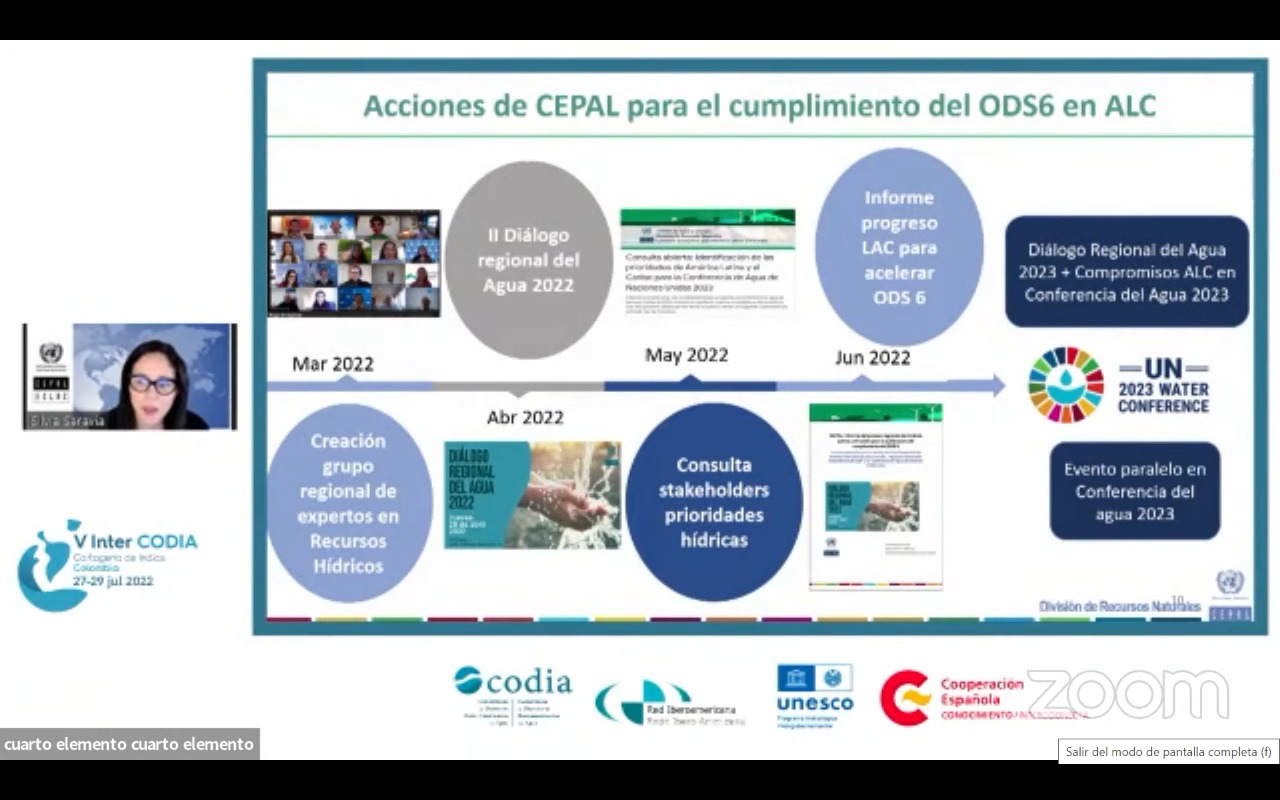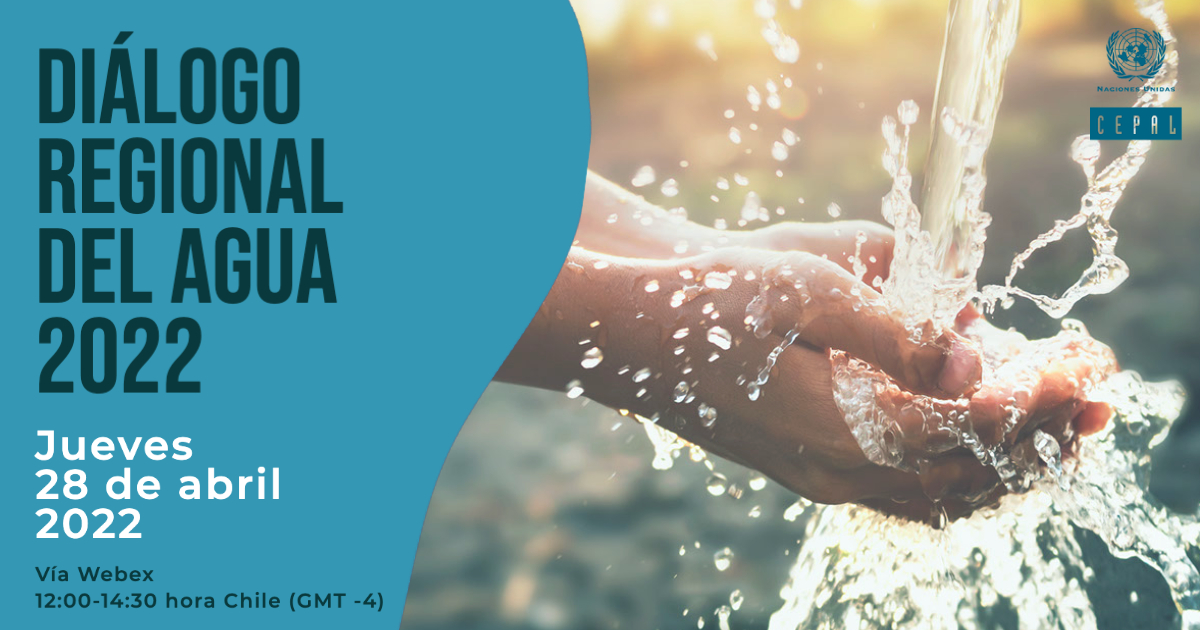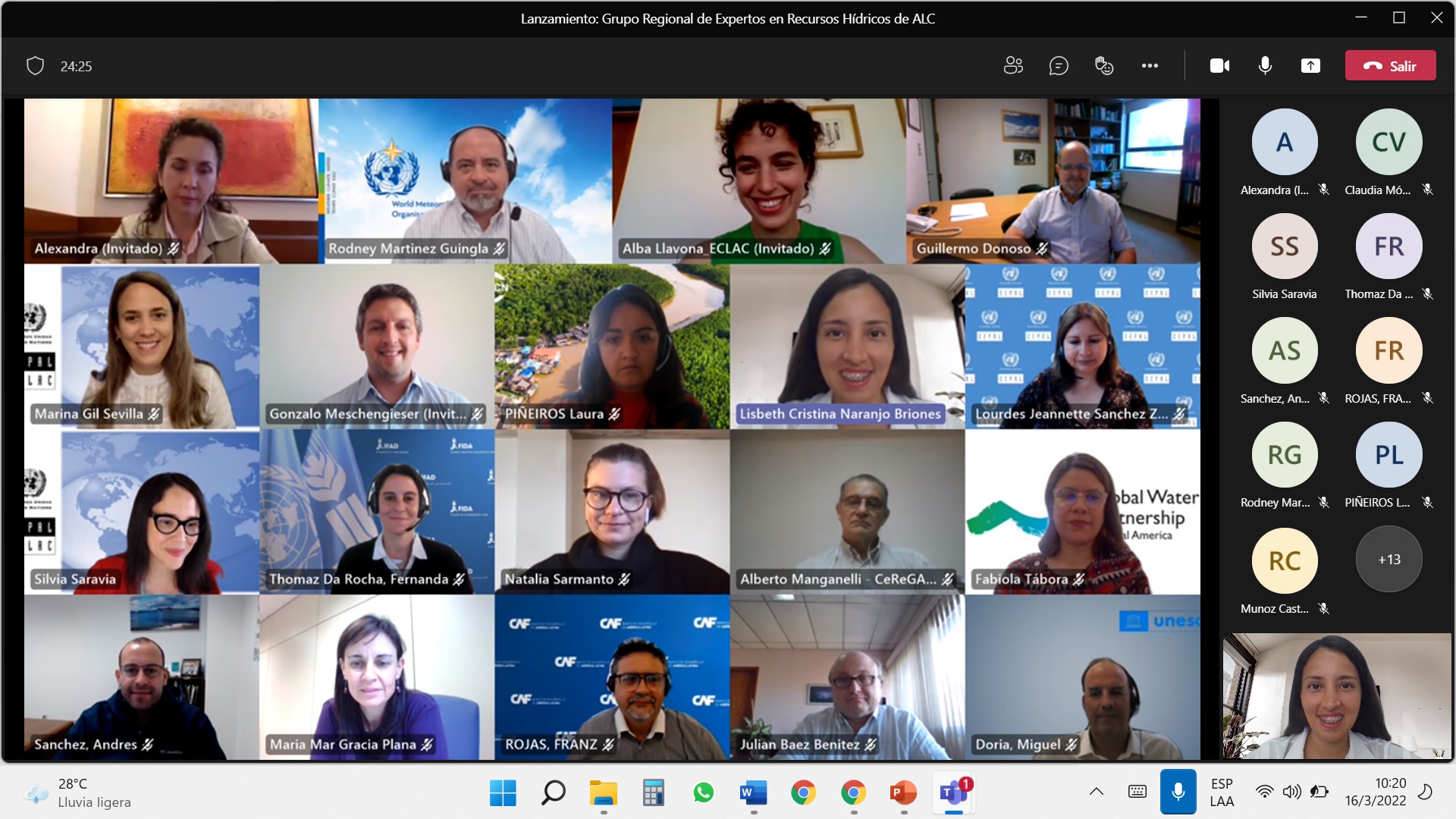Participation of ECLAC in the Conference of Ibero-American Water Directors V InterCODIA
Work area(s)
Topic(s)
Teaser
ECLAC's intervention took place in the first session of the High-Level Seminar "Water and post-COVID recovery. A regional overview".
Event information

Date
27 - 29 Jul 2022, 06:00 - 11:00Event type
On July 27, 28, and 29, 2022, the V InterCODIA meeting was held in Cartagena de Indias (Colombia), organized by the Spanish Agency for Cooperation and the Intergovernmental Hydrological Program of UNESCO, to address issues related to water management in the Ibero-American region, and in particular highlighting the role of water in the post-COVID era.
This meeting had a hybrid face-to-face/virtual format. Representatives of countries, agencies of the United Nations System, international cooperation, and development banks, among other international institutions linked to water management in the region, attended the meeting. The event was structured in two main segments. The first segment, on July 27, was the High-Level Seminar "Water and post-COVID recovery," in which its members reflected together on the situation of the water sector after the pandemic, with particular emphasis on the Recovery Plans carried out by the countries and the lessons learned that have resulted from this process. The second segment, on the 28th and 29th, was the V InterCODIA meeting to advance the CODIA Work Program.
Dr. Silvia Saravia Matus, from the Natural Resources Division of ECLAC, participated in Session 1 of the high-level seminar entitled Recovery plans and sustainable investments in the Post-COVID era. Her presentation was "Water as a development vector: towards a sustainable and inclusive water transition and a transformative recovery proposal in LAC."
Saravia Matus began her presentation by exposing the relevant role of water resources as a human right, an equalizing element of society, central to climate resilience, and an irreplaceable productive input. Similarly, she reviewed the current context of the region, which is characterized by scenarios of high scarcity and water stress, especially in large cities and areas of more significant economic activity. For this reason, ECLAC proposes a transition in regional water management that is sustainable, efficient, and inclusive, and that is based on the following four pillars: ¡) guarantee the human right to drinking water and sanitation managed safely through the investment imposed on the sector, leaving no one behind; ii) promote regulatory and normative changes to promote equitable and affordable access and thus eradicate water poverty; iii) reverse the growing negative externalities associated with pollution, overexploitation and socio-environmental conflicts; derived in part from insufficient regulation and control; and iv) move from linear management to circular management to reduce pressure on water resources, establishing a trend towards decoupling between extraction and GDP.
ECLAC considers that one of the main challenges is to generate evidence on why and how investments should be made in the drinking water and sanitation sector, considering the economic, social, and environmental spheres. For this reason, ECLAC has estimated that investing 1.3% of annual GDP until 2030 would allow universalizing access to safe drinking water and sanitation, which could generate up to 3.4 million direct jobs each year. Likewise, another study has estimated that investing in circular water treatment systems and recovering methane for energy generation and self-consumption has a positive cost-benefit ratio since it reduces the plants' operating costs by approximately 40% and decreases methane emissions by 86%, with a positive equivalent cost-benefit ratio per person of USD 1.34.
To conclude, she briefly shared some of the preparatory activities that ECLAC is promoting in the framework of the upcoming 2023 Water Conference, such as the formation of a regional group of experts on water resources, the 2022 Water Dialogues event, as well as the consultation establish regional priorities for water resources in the region.
Related content

On April 28, ECLAC organized the 2022 Regional Water Dialogue: Towards an inclusive and sustainable water transition in Latin America and the Caribbean - Preparatory meeting for the 2023 United Nations Water Conference
For the second consecutive year, ECLAC organized the event “Regional Dialogue on Water” as a platform for dialogue to encourage the exchange of regional knowledge and experiences to accelerate the…

ECLAC promotes the consolidation of the regional expert group on water resources in Latin America and the Caribbean
The group of experts, formed by more than twenty representatives of the most prestigious institutions in the region's water resources field, aims to join forces to implement initiatives that…